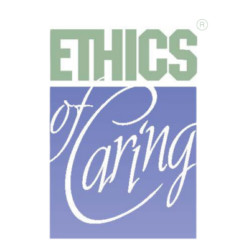“My advice is for nurses to think of themselves as experts at all times, standing alongside other experts (doctors, social workers, etc.) in a common mission to advocate for patients.”

Dr. Denise Dudzinski PhD, MTS is Professor and Chair of the Department of Bioethics & Humanities at the University of Washington School of Medicine and Chief of the UW Medicine Ethics Consultation Service, which is active in three hospitals.
Click to Share this 2018 Spotlight!
Q:
Given disparities in health care coverage, discharge planning particularly for the most vulnerable might be a growing source of moral distress for nurses and social workers. Do you have any advice how they can navigate ‘ethically and practically’ in their roles, in doing their best for their patients?When for example they are no longer able to achieve previously satisfactory plans for their patients,let alone an ideal? Can clinicians survive philosophically in this space, avoiding compassion fatigue and overall discouragement?
It is the earnest striving to care and advocate for your patients that is virtuous, even if the goal is not achieved. If we honor our actions more than the outcomes, we can find peace. This does not mean we do not grieve when we cannot rectify the injustices that leave our patients vulnerable to illness. We help each other through this grief but keep the virtue of our actions foremost in mind.
– Denise Dudzinksi
Q:
In your experience, have you observed nurses act as advocates for their patients? Do you have advice for how nurses can enhance their roles in promoting advocacy, particularly under challenging circumstances of patient vulnerability?
Yes, nurses constantly advocate for their patients. My advice is for nurses to think of themselves as experts at all times, standing alongside other experts (doctors, social workers, etc.) in a common mission to advocate for patients. Experts routinely talk with each other and occasionally disagree. It’s normal. But if nurses feel like they’re broaching a hard issue with an expert (the doctor) but they do not feel like one themselves, it can feel too risky. Nurses are experts. Period.
– Denise Dudzinksi
Q:
Recently you wrote about ‘Repairing Difficult Patient-clinician Relationships’, suggesting that clinicians take responsibility for initiating the repair. Can you talk about the challenges in taking up this responsibility for nurses and social workers? What can help nurses and social workers take up their roles?
In the current healthcare environment, there are more nurses than ever before in positions of leadership and influence. Those in these roles, when they are good role models, can strengthen the professional and moral identity of nurses. More opportunities exist for nurses to develop their leadership capabilities through professional organizations and educational opportunities, making it more possible to find ways to capitalize on these changes.If we start by treating patients as though they need our help even when they act like they don’t, the whole tenor of the relationship changes. A nurse’s genuine care and concern can repair the relationship as long as self-care is planned ahead of time. When you know a tough interaction is coming, what will you need beforehand to put you in a compassionate mindset – and afterward, to help you find some equilibrium again?
